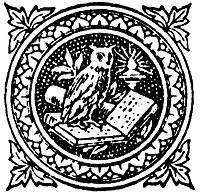Marginalia
Home
About Marginalia
Current Issue
Archived Issues
Notes to Contributors
Links to Other Online Journals
Marginalia -- The Website of the MRG
Vicky Flood contributes her essay, ‘The N-Town Trials and the Image of the Community’, to the debate on law in the mystery plays. She argues that the division between the world of the play and the lives of its audience is less pronounced than some twentieth-century criticism suggests, and shows how trials in N-Town, including the fascinating Trial of Mary and Joseph and the trials of the Passion sequence, invite questions about the relationship of stage and community. This article is a useful N-Town complement to Pamela King’s similar work on the York cycle.1
Aisling Byrne seeks to offer a new perspective on Wynnere and Wastoure by paying close attention to its manuscript context. Critical interest in both the Piers Plowman tradition and in Robert Thornton’s London and Lincoln codices has blossomed in recent years and Aisling Byrne shows how a thematic concern with the world ‘vp so doune’ may unify the London manuscript’s contents and thus allow further thought on the problematic ending of Wynnere and Wastoure.
Another topic that is currently prompting much valuable work from medievalists is childhood, with many avenues of research opened by the important studies by Philippe Ariès and Nicholas Orme. Joanna Bellis’s essay on ‘The Sanctity of Childhood Innocence in the English Courtesy Books’ engages with the two contrasting ideas of childhood that emerge from patristic literature to influence medieval churchmen, and she shows how this inflects the portrayal of children in courtesy books, wherein theological extremes are tempered with the practicality of advice for the children of its audience.
These essays, which contribute to each student’s compulsory coursework for the degree of Master of Philosophy, collectively point to the thriving state of medievalism here in Cambridge. We all look forward to seeing more work from these young academics in future.
Linda R. Bates, University of Cambridge
 Contents |  Next |
1. King, Pamela M., 'Contemporary cultural models for the trial plays in the York Cycle', in Drama and Community: People and Plays in Medieval Europe, ed. by Alan Hindley (Turnhout, Belgium: Brepols, 1999), pp.200-16.
© 2004 The authors and the Medieval Reading Group at the University of Cambridge
No material may be reproduced without written authority.
Last modified on .
Marginalia -- MRG Website::Contact Us::About Us::Credits and Thanks::Search::Archives

